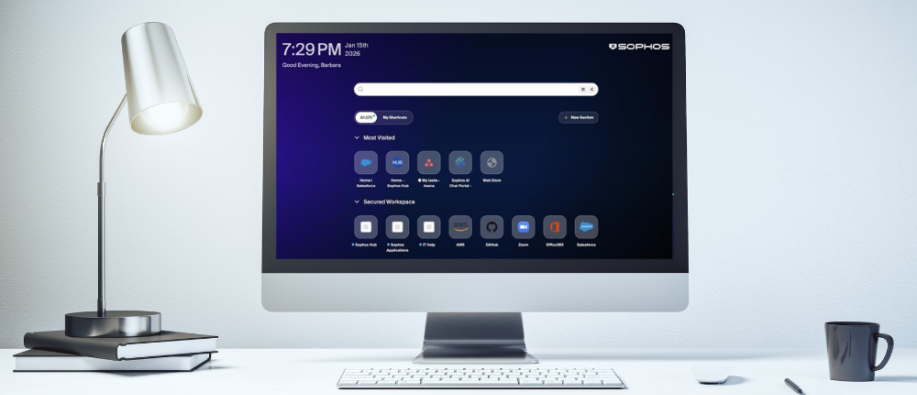India Leads APAC in AI/ML Transactions: Zscaler Study
Zscaler, the leader in cloud security, announced the release
of its ThreatLabz 2025 AI Security Report, which draws on over 536 billion AI
transactions analysed globally on the Zscaler Zero Trust Exchange between
February and December 2024. The report reveals a staggering 3,465%
year-over-year increase in AI/ML transactions showcasing 36x usage over a year.
This report also explores recent developments in areas that will undoubtedly
influence AI in 2025 and beyond, including agentic AI, the emergence of DeepSeek,
and the evolving regulatory landscape.
The report reveals a 3,000+% year-over-year growth in
enterprise use of AI/ML tools, highlighting the rapid adoption of AI
technologies across industries to unlock new levels of productivity,
efficiency, and innovation. Enterprises are sending significant volumes of data
to AI tools, totalling 3,624 TB, underscoring the extent to which these
technologies are integrated into operations. However, this surge in adoption
also brings heightened security concerns.
Enterprises blocked 59.9% of all AI/ML transactions,
signaling enterprise awareness around the potential risks associated with AI/ML
tools, including data leakage, unauthorized access, and compliance violations.
Threat actors are also increasingly leveraging AI to amplify the
sophistication, speed, and impact of attacks—forcing enterprises to rethink
their security strategies.
“As AI transforms industries, it also creates new and
unforeseen security challenges,” said Deepen Desai, Chief Security Officer at
Zscaler. “Data is the gold for AI innovation, but it must be handled securely.
The Zscaler Zero Trust Exchange platform, powered by AI with over 500 trillion
daily signals, provides real-time insights into threats, data, and access
patterns—ensuring organizations can harness AI’s transformative capabilities
while mitigating its risks. Zero Trust Everywhere is the key to staying ahead
in the rapidly evolving threat landscape as cybercriminals look to leverage AI
in scaling their attacks.”
Key Insights from the
ThreatLabz 2025 AI Security Report
India leads in APAC, ranks second globally
India emerged as the second-highest contributor to global
enterprise AI/ML traffic, trailing only the United States. Within the APAC
region, India was the highest, accounting for 36.4% of all AI/ML transactions —
more than double Japan’s share of 15.2% and nearly triple that of Australia
(13.6%). The rest of APAC, including the Philippines (6.5%), Singapore (5.6%),
and New Zealand (4.6%), collectively accounted for less than 20%.
ChatGPT Dominates AI/ML Transactions, But Security Concerns
Remain
ChatGPT emerged as the most widely used AI/ML application,
driving 45.2% of identified global AI/ML transactions in the Zscaler Zero Trust
Exchange. However, it was also the most-blocked tool due to enterprises’
growing concerns over sensitive data exposure and unsanctioned use. Other
most-blocked applications include Grammarly, Microsoft Copilot, QuillBot, and
Wordtune, showing broad usage patterns for AI-enhanced content creation and
productivity improvements.
DeepSeek and Agentic AI: Innovation Meets Escalating Threats
AI is amplifying cyber risks, with usage of agentic AI and
China’s open-source DeepSeek enabling threat actors to scale attacks. So far in
2025, we’ve seen DeepSeek challenge American giants like OpenAI, Anthropic, and
Meta, disrupting AI development with strong performance, open access, and low
costs. However, such advancements also introduce significant security risks.
Finance & Insurance Lead Enterprise AI Traffic by
Industry
The Finance & Insurance sector accounted for 28.4% of
all enterprise AI/ML activity, reflecting its widespread adoption, and
indicative of the critical functions supported by the industry, such as fraud
detection, risk modeling, and customer service automation. Manufacturing was
second, accounting for 21.6% of transactions, likely driven by innovations in
supply chain optimization and robotics automation. Additional sectors,
including Services (18.5%), Technology (10.1%), and Healthcare (9.6%), are also
increasing their reliance on AI, while each industry also faces unique security
and regulatory challenges posing new risks and possibly impacting the overall
rate of adoption.
“India’s rise to the top spot in APAC’s AI/ML adoption
underscores a thriving innovation landscape but it also highlights the growing
attack surface,” said Suvabrata Sinha, CISO-in-Residence, India at Zscaler.
“With GenAI tools becoming integral to everyday workflows, enterprises need
real-time visibility, precise controls, and scalable protection. Zscaler’s Zero
Trust solutions enable Indian organizations to safeguard users, workloads, and
data with policy-driven access rather than outdated network assumptions. Our
platform leverages AI to combat AI-driven threats—be it AI-powered attacks,
shadow AI, or data leakage delivering predictive breach insights, automated
segmentation, and continuous risk assessments. This allows India’s digital
leaders to innovate quickly without compromising trust.”
The report also identified how agentic AI and open-source
tools such as DeepSeek have unlocked efficiencies and new avenues for threat
actors. A surge in AI-powered phishing, fake AI platforms, and deepfake-driven
fraud marks a new phase of cyber threats in India and beyond. Malware campaigns
like “Flora AI” have already begun exploiting enterprise interest in GenAI by
mimicking legitimate AI tools to deliver infostealers.

































Leave A Comment